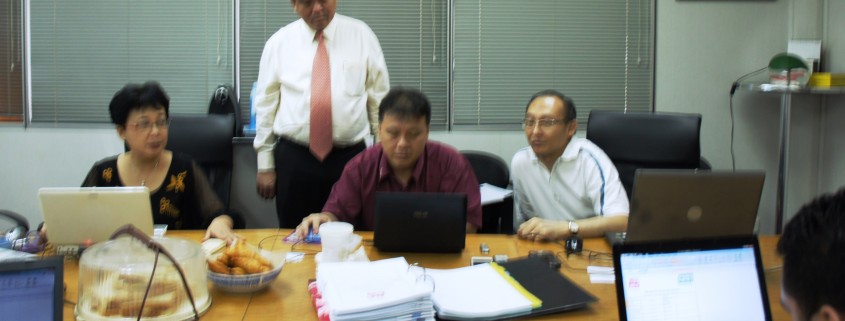DTS Marketing Case Study (Specialized Industry)
DTS Marketing Business Continuity Management Case Study
DTS Marketing Pte Ltd is a leading company that provides Information Technology solutions and services to the banking financial sector and the hospitality and retail sector. Headquartered in Singapore, DTS operates worldwide with subsidiaries and satellite offices in Malaysia, Cambodia and China. With expanding global operations, a resilient operational plan is essential to manage its international businesses in the event of a disaster, especially to the banking financial sector.
The Challenge
DTS provides IT support and services to banks for machines such as the TK Personalisation MICR Encoder, Teller Scan Cheque Scanner and Talaris System, which involves the scanning and encoding of cheques. The company also provides Point of Sales System, Tracker Tenant Management Solution and Voucher Management System to the hospitality and retail industry. DTS core business is not only to market the products listed above, but to also provide after sales services that will help business owners manage their businesses from the front of the house operation to the back of the house operation.
For this reason, they are frequently governed by Service Level Agreements (SLAs). It was then that they realized a Business Continuity Plan would have to be developed in order to maintain their support operations to these clients in times of crises and disasters. “The Management concern was that DTS would not be able to meet the stringent SLAs, especially for the banking financial sector, in the face of crises. This would cause DTS to incur huge financial and reputational losses,” says Janet Ong, Managing Director of DTS Marketing.
DTS embarked on the project with the objective to quickly develop a comprehensive plan with minimal disruption to current business operations. It required a robust plan to satisfy management and clients’ concerns.
Solution
DTS does not have any prior Business Continuity Plans or any kind of Business Continuity Management program. Due to its lean organization structure and lack of BC-skilled personnel, DTS’ Management looked to a consulting firm to develop the company’s Business Continuity skills and to help create a plan. “After some deliberation between different companies, we decided to move ahead with GMH’s consulting services because its two-pronged approach – consulting and training –provided the assurance that we would not only have a plan but also the expertise to maintain an organization BCM program,” recalls Janet.
GMH, in conjunction with BCM Institute, developed a specialized training program to increase the project team’s level of Business Continuity competency. It deployed consultants to oversee the project, aiding the DTS team in the analysis of the impact of potential threats to their business operations. Minimum Business Continuity Objectives were written for business units which were identified as critical during a disaster. Support and IT business functions were identified as the most critical ones with only a 4-hour Recovery Time Objective (RTO), as IT is almost always required to back-up Support’s operations.
Recovery strategies were weighed accordingly and it was concluded that DTS operate from a private alternate site during crises and disasters because of minimal setup cost and time required and convenient access to and activation of controls. It will be considered a “warm” recovery site with readily available infrastructure and utilities. Business units operating from the recovery site and remote sites were also considered. For example, to counter the stringent SLAs, it was decided that Support would operate directly from the client’s site for the first 2 days, keep their work logs manually until the recovery site is set up, monitor the situation and provide periodical updates to the command centre. IT, on the other hand will immediately proceed to set up the IT infrastructure at the recovery site, retrieve the backup files and provide support to the rest of the business units.
Business Continuity Plans were then created for each business unit, with detailed recovery procedures documented by the business unit representatives, under the supervision and guidance of the consultants. Other considerations like assembly points, call tree, key contacts and detailed directions to the alternate site were also determined by the DTS BCM Team. The team also performed a walkthrough exercise to familiarise themselves with the recovery procedures, as well as a company-wide notification call tree test to ensure its effectiveness. The result was a 100% success rate of attempted contacts within 1 hour, with 95% of relayed messages returning accurate.
One of the key success factors of the whole consulting project was the fact that the management and business unit heads were present for all workshops, allowing the entire project team to be able to effectively iron out any discrepancies on the spot. The training was highly beneficial to DTS, resulting in the creation of a Business Continuity culture among employees and management. “Due to the rigorous process of implementing BCM in our organization, the BCM Team and Management had to meet frequently to iron out any problems and to discuss about the BC Plans. This really brought the (DTS) team together. We became more unified and BCM became a concept embedded in the employees, evident in the incorporation of backup procedures in their daily routines,” remarked Janet.
The Result
DTS developed operational and IT recovery procedures to overcome a seven day disaster. The project ensured that the company identified and prepared an alternate location for headquarters management and operations. The Business Continuity Management System developed under GMH’s guidance allowed DTS to be certified SS540 compliant from British Standards Institute. Janet Ong best sums up the project, “management and our clients are now assured that DTS’ business operations are secure and will continue in times of crises or disasters.”
At A Glance
What they wanted to do:
- Develop a robust business continuity plan to manage client expectations
- Create internal Business Continuity expertise
What they did:
- Provided managers and staff the necessary knowledge to develop a business continuity plan
- Jointly created a plan with GMH consultants
What they accomplished:
- Achieved SS540 certification from BSI
- Developed a disaster headquarters
- Implemented resilient IT and operational procedures
- Satisfied management and clients’ concerns
Statement:
“GMH provided us the necessary guidance to develop our Business Continuity plan and internal training program. We now feel confident to manage our own Business Continuity program.”
DTS Marketing Pte Ltd
Managing Director
About GMH:
GMH offers a total business continuity solution for organizations of any size. GMH, in conjunction with its clients, develops comprehensive business continuity plans. Its partnership with BCM Institute ensures that clients will gain domain Business Continuity knowledge and the ability to develop future Business Continuity plans.
Afternote: In 2015, DTS with the help of GMH had successfully assisted DTS and they have successfully achieved their ISO22301:2012 certification.


